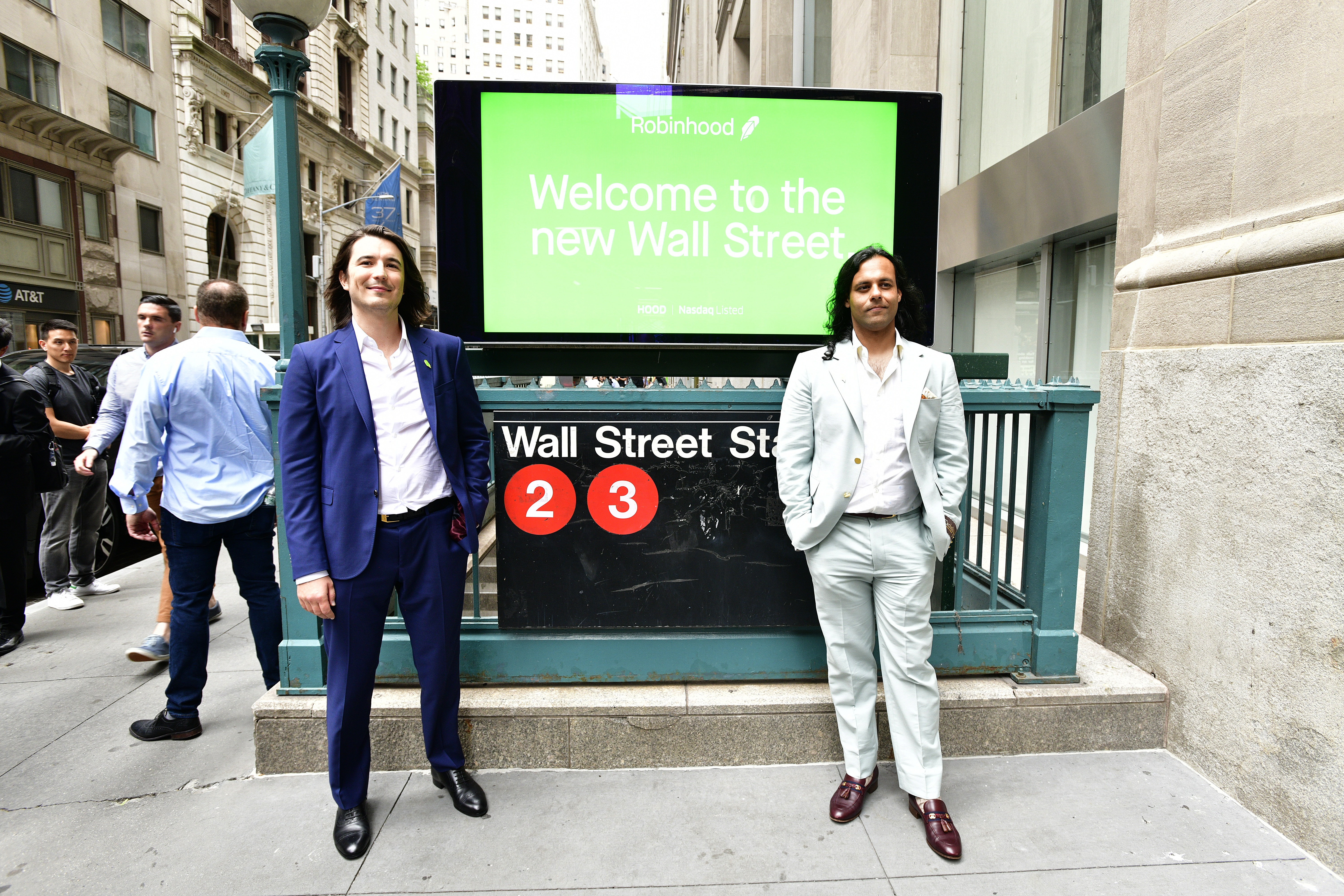Robinhood surfs the retail trading wave

A free daily email with the biggest news stories of the day – and the best features from TheWeek.com
You are now subscribed
Your newsletter sign-up was successful
The smartest insight and analysis, from all perspectives, rounded up from around the web:
After a rocky initial public offering, the app-based brokerage Robinhood roared back this week, splitting the firm's own loyal customers, said Aaron Pressman at The Boston Globe. Robinhood, the maker of an app that has defined stock trading for many Millennials, offered its clients the chance to get IPO shares at a price usually reserved for large institutions — only to see its stock plunge in its first day of trading. That initial decline last week added to a series of outages and other indignities that Robinhood's customers have endured. Buyers who held on to their stock for just a few days, though, saw a substantial profit. "After using the Robinhood app to trade stocks for about three years, starting when he was in high school," Northeastern University student Caio Almeida bought shares in the IPO and "isn't too worried about the early struggles." Almeida plans to stay with the stock for the long term. "There's been a gap in our financial system for years, which the founders of Robinhood have truly disrupted," he says.
"Robinhood has become a divisive company for many individual investors in the meme-stock era," said Caitlin McCabe at The Wall Street Journal. Some, upset with Robinhood's trading restrictions on a few popular stocks like GameStop earlier this year, even "vowed in advance of Robinhood's trading debut that they would avoid the stock — or even make bearish wagers against it." As the days went on, though, the tide turned in Robinhood's favor, with market commentator Jim Cramer praising Robinhood's "army of 22 million users." The question for Robinhood is what exactly is its long-term plan to make money, said Madison Darbyshire at the Financial Times. The company's business model is heavily dependent on payment for order flow, a controversial practice of selling clients' orders for shares or options to other trading firms. Several large institutional investors sat out the IPO last week, worried that Robinhood faced "an 'existential threat' to its business" as regulators scrutinized that practice as well as "game-like features" — including confetti explosions and lottery-like scratch-off graphics — that have been likened to casino gambling.
The Week
Escape your echo chamber. Get the facts behind the news, plus analysis from multiple perspectives.

Sign up for The Week's Free Newsletters
From our morning news briefing to a weekly Good News Newsletter, get the best of The Week delivered directly to your inbox.
From our morning news briefing to a weekly Good News Newsletter, get the best of The Week delivered directly to your inbox.
For now, Robinhood's business has been "jacked up by the speculative fervor of the moment," said John Foley at BreakingViews. A bet on Robinhood is also a bet on continued stock-market fever. In that way, it's similar to its dot-com forebear E*Trade, which also "threw the staid world of investing into disarray" in the late 1990s. But when the market turned, its value "fell precipitously." The inherent problem with Robinhood's approach is that "the more people trade, the worse their returns," said The Economist. All the tricks Robinhood uses to keep its clients coming back may well mean that they end up poorer. Equally worrisome is that Robinhood's profits rise as its customers take greater risks. "Its profit margins are slimmest for the vanilla stuff, like stock trading, but rise as its customers dabble in riskier, more complicated markets, such as trading derivatives or buying crypto-currencies." Nonetheless, the lingering questions don't seem to have dampened retail investors' enthusiasm.
This article was first published in the latest issue of The Week magazine. If you want to read more like it, you can try six risk-free issues of the magazine here.
A free daily email with the biggest news stories of the day – and the best features from TheWeek.com
-
 How the FCC’s ‘equal time’ rule works
How the FCC’s ‘equal time’ rule worksIn the Spotlight The law is at the heart of the Colbert-CBS conflict
-
 What is the endgame in the DHS shutdown?
What is the endgame in the DHS shutdown?Today’s Big Question Democrats want to rein in ICE’s immigration crackdown
-
 ‘Poor time management isn’t just an inconvenience’
‘Poor time management isn’t just an inconvenience’Instant Opinion Opinion, comment and editorials of the day